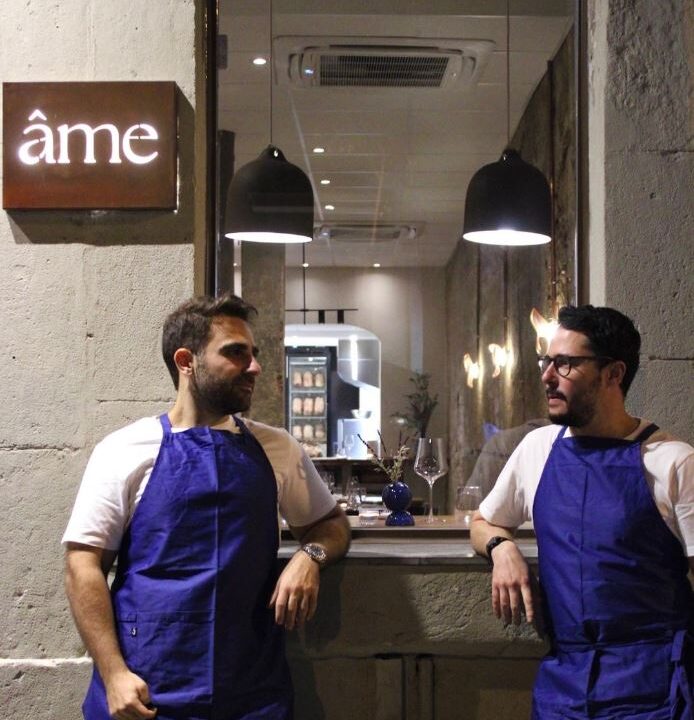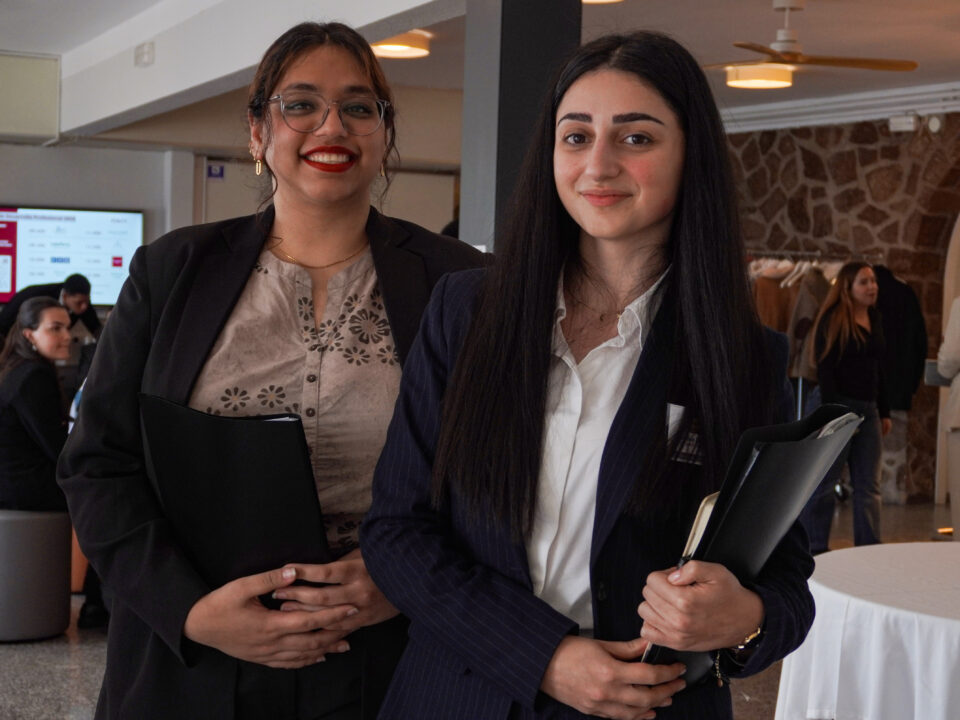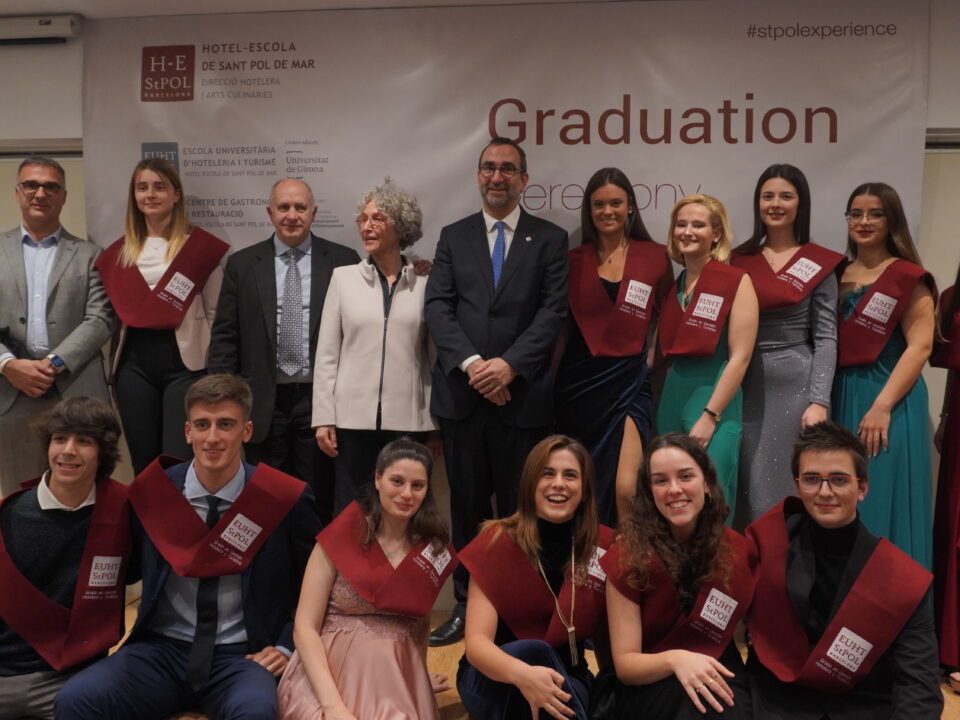
EUHT StPOL, National Hospitality Award 2011
25 October, 2011
Interview with Roy Avárez
26 March, 2013Thomas P. Cullen recently retired as Associate Professor of Strategic Management, Human Resources and Management in the School of Hotel Administration at Cornell University (New York, United States of America). He held appointments as Visiting Professor at Hong Kong Polytechnic University and ESSEC, a leading business school in Paris, France as well as universities in Korea, Japan, Shanghai and Sant Pol de Mar University College of Hospitality and Tourism.
He has conducted seminars and workshops in thirty five countries, on every continent. A veteran of the international hotel industry, Dr. Cullen spent nearly fifteen years in industry before pursuing graduate studies and a career in academia. He was employed by both American and Japanese companies in management, development, accounting and finance. He has worked in scores of countries in Europe, Africa, The Middle East, Asia, The South Pacific and South America.
Dr. Cullen is the recipient of numerous teaching awards including “Teacher of the Year” at the University of San Francisco, and the distinguished Cornell University award, The Merrill Presidential Teaching Award.
Active in research activities, Dr. Cullen has published in a number of professional journals, and has presented papers at many academic and professional conferences including The Academy of Management, The Eastern Academy of Management, The Western Academy of Management, The American Hotel and Motel Association, and CHRIE.
His present research interests focus on strategic management, trends affecting the hospitality industry, futurist studies, trans-national management, and globalization.
Dr. Cullen is the senior partner of Thomas Cullen and Associates, Inc., an industry specific management consulting, and human resources development firm. He advises companies in the United States, Canada and throughout Europe, Asia and Africa. He is a long time member of the Strategic Advisory Board of the United States Postal Service. He also serves on a number or corporate and public service boards.
Which skills do you think are key for being a hotel manager?
Understanding the psychology of behavior of employees and guests. That is what I mainly teach at Sant Pol de Mar University.
Why teaching at Sant Pol and not other schools in Spain?
I am retired. I only work when I enjoy the people I am working with. And I like the people, students and staff at San Pol. I do some volunteer work in Laos, but not much else these days. Retirement allows me to spend more time singing, going to the theater, reading, and being lazy. I enjoy my free time. But I really enjoy San Pol. It’s a pact I made with myself when I retired…. work when it is fun.
After teaching in all 5 continents, which teaching model works better in hospitality and tourism?
I like learning by doing, doing so many exercises and assessments. Sometimes students are hesitant in speaking English, but when it works, I like the Socratic method very much and I am a big user of technology. I think the iPad is a wonderful tool for learning and teaching. I hope to adapt some of my materials for the iPad.
I try to make adjustments for different cultures. My PhD is in cross-cultural psychology, so I try to put my special knowledge into play when teaching. But perhaps it is just that I enjoy seeing how different cultures react, especially with assessments and management games.
What is the perfect balance between theoretical and practical lessons when studying hospitality management?
I think you have to understand the basics of the technical aspects of service and hotel keeping. If you do not apply the theory or cannot because you don’t understand the practical, then the theory is not terribly useful.
What are the strategies that will work better in the devolopment of the countries tourism?
Decide what your target market is – you cannot be all things to all people. You have to offer something special to your guests, and make sure that they will not demand that you do away with the things which are special in your own culture. I will be lecturing on this in Luang Prabang (Laos) in a few weeks.
Which advise would you give to the hotel management students that are about to entry the industry?
Do it if you love the industry. If you don’t have the heart of a hotelier or restaurateur, it is better to find another profession. Successful hoteliers and restaurateurs have a special love for caring for their guests.
Is hosapitality a vocational job or can you get interest into it after having worked in other industries?
There are many people who dream of running a hotel or a restaurant “some day”. It can be done later in life, but just being a good cook at home, or wanting to be a hotelier is not enough. You cannot easily jump onto this business. Perhaps you can go from selling insurance to selling hardware, but not from selling insurance to running a hotel or a restaurant.
Which are the main differences between the hospitality in Western and Asian countries?
A lot what we know as Asian luxury is the luxury of having a large staff to guest room ratio; as Asian salaries catch up with the west, some of that luxury will come at a stiff price, as we have seen in Singapore.
But some cultures, such as The Philippines, are very “service friendly”. And it is perhaps easier in The Philippines and Thailand to offer a higher level of service because of the culture.
My classmate, a brilliant hotelier and former President of Four Seasons Hotels, once said, the secret to success in this business is to always hire nice people. The skills can be taught, but you cannot teach someone to be nice.
I just returned from a trip to Cambodia, and I was amazed at how pleasant the staff were, even if the skills left something to be desired, it was easy to be pleased with the pleasant service.Thomas P. Cullen recently retired as Associate Professor of Strategic Management, Human Resources and Management in the School of Hotel Administration at Cornell University (New York, United States of America). He held appointments as Visiting Professor at Hong Kong Polytechnic University and ESSEC, a leading business school in Paris, France as well as universities in Korea, Japan, Shanghai and Sant Pol de Mar University College of Hospitality and Tourism.
He has conducted seminars and workshops in thirty five countries, on every continent. A veteran of the international hotel industry, Dr. Cullen spent nearly fifteen years in industry before pursuing graduate studies and a career in academia. He was employed by both American and Japanese companies in management, development, accounting and finance. He has worked in scores of countries in Europe, Africa, The Middle East, Asia, The South Pacific and South America.
Dr. Cullen is the recipient of numerous teaching awards including “Teacher of the Year” at the University of San Francisco, and the distinguished Cornell University award, The Merrill Presidential Teaching Award.
Active in research activities, Dr. Cullen has published in a number of professional journals, and has presented papers at many academic and professional conferences including The Academy of Management, The Eastern Academy of Management, The Western Academy of Management, The American Hotel and Motel Association, and CHRIE.
His present research interests focus on strategic management, trends affecting the hospitality industry, futurist studies, trans-national management, and globalization.
Dr. Cullen is the senior partner of Thomas Cullen and Associates, Inc., an industry specific management consulting, and human resources development firm. He advises companies in the United States, Canada and throughout Europe, Asia and Africa. He is a long time member of the Strategic Advisory Board of the United States Postal Service. He also serves on a number or corporate and public service boards.
Which skills do you think are key for being a hotel manager?
Understanding the psychology of behavior of employees and guests. That is what I mainly teach at Sant Pol de Mar University.
Why teaching at Sant Pol and not other schools in Spain?
I am retired. I only work when I enjoy the people I am working with. And I like the people, students and staff at San Pol. I do some volunteer work in Laos, but not much else these days. Retirement allows me to spend more time singing, going to the theater, reading, and being lazy. I enjoy my free time. But I really enjoy San Pol. It’s a pact I made with myself when I retired…. work when it is fun.
After teaching in all 5 continents, which teaching model works better in hospitality and tourism?
I like learning by doing, doing so many exercises and assessments. Sometimes students are hesitant in speaking English, but when it works, I like the Socratic method very much and I am a big user of technology. I think the iPad is a wonderful tool for learning and teaching. I hope to adapt some of my materials for the iPad.
I try to make adjustments for different cultures. My PhD is in cross-cultural psychology, so I try to put my special knowledge into play when teaching. But perhaps it is just that I enjoy seeing how different cultures react, especially with assessments and management games.
What is the perfect balance between theoretical and practical lessons when studying hospitality management?
I think you have to understand the basics of the technical aspects of service and hotel keeping. If you do not apply the theory or cannot because you don’t understand the practical, then the theory is not terribly useful.
What are the strategies that will work better in the devolopment of the countries tourism?
Decide what your target market is – you cannot be all things to all people. You have to offer something special to your guests, and make sure that they will not demand that you do away with the things which are special in your own culture. I will be lecturing on this in Luang Prabang (Laos) in a few weeks.
Which advise would you give to the hotel management students that are about to entry the industry?
Do it if you love the industry. If you don’t have the heart of a hotelier or restaurateur, it is better to find another profession. Successful hoteliers and restaurateurs have a special love for caring for their guests.
Is hosapitality a vocational job or can you get interest into it after having worked in other industries?
There are many people who dream of running a hotel or a restaurant “some day”. It can be done later in life, but just being a good cook at home, or wanting to be a hotelier is not enough. You cannot easily jump onto this business. Perhaps you can go from selling insurance to selling hardware, but not from selling insurance to running a hotel or a restaurant.
Which are the main differences between the hospitality in Western and Asian countries?
A lot what we know as Asian luxury is the luxury of having a large staff to guest room ratio; as Asian salaries catch up with the west, some of that luxury will come at a stiff price, as we have seen in Singapore.
But some cultures, such as The Philippines, are very “service friendly”. And it is perhaps easier in The Philippines and Thailand to offer a higher level of service because of the culture.
My classmate, a brilliant hotelier and former President of Four Seasons Hotels, once said, the secret to success in this business is to always hire nice people. The skills can be taught, but you cannot teach someone to be nice.
I just returned from a trip to Cambodia, and I was amazed at how pleasant the staff were, even if the skills left something to be desired, it was easy to be pleased with the pleasant service.
Photos of Cullen’s Master Class in EUHT StPOL:









